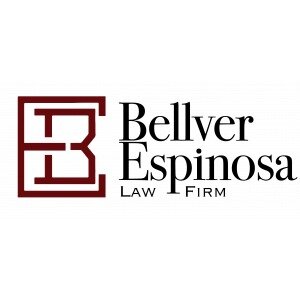Best Retirement Lawyers in Puerto Rico
Share your needs with us, get contacted by law firms.
Free. Takes 2 min.
Or refine your search by selecting a city:
List of the best lawyers in Puerto Rico
About Retirement Law in Puerto Rico
Retirement in Puerto Rico is governed by a mix of federal and local laws that aim to provide financial security to retired individuals. The island's retirement system includes the Social Security benefits available to U.S. citizens, as well as specific pension plans for public employees. Additionally, there are tax incentives for retirees that can make Puerto Rico an attractive place for retirement. However, understanding and navigating these legal frameworks can be complex, especially for those unfamiliar with local regulations.
Why You May Need a Lawyer
There are several situations where legal assistance might be necessary for retirement planning in Puerto Rico:
- Navigating Social Security benefits and local pension plans to maximize retirement income.
- Understanding and optimizing tax incentives specifically designed for retirees.
- Settling disputes with pension administrators or the Social Security Administration.
- Managing retirement accounts in the context of marital dissolution or other family law matters.
- Estate planning, including wills, trusts, and ensuring proper beneficiary designations.
- Advising on healthcare considerations, including Medicaid eligibility and long-term care planning.
Local Laws Overview
Several key aspects of local laws pertain to retirement in Puerto Rico:
- Retirement Systems: Puerto Rico’s government employees have specific pension plans with different vesting periods, benefit calculations, and contribution rates.
- Taxation: Puerto Rico offers considerable tax advantages for retirees, including a lower tax rate on retirement income and no federal tax on Social Security benefits.
- Federal Benefits: As U.S. citizens, Puerto Ricans are eligible for Social Security benefits, following the same qualifications and regulations as in the mainland U.S.
- Healthcare: Considerations related to Medicare and Medicaid, as well as local healthcare programs, play a crucial role in retirement planning.
Frequently Asked Questions
What are the tax implications of retiring in Puerto Rico?
Puerto Rico often offers tax advantages for retirees, such as lower rates on retirement income and no federal tax on Social Security benefits, which can be beneficial for those relocating from the mainland U.S.
How does Social Security work for retirees in Puerto Rico?
Residents of Puerto Rico receive Social Security benefits under U.S. federal law. These benefits are identical to those on the mainland but are not subject to Puerto Rican income tax.
What pension plans are available for public employees?
Public employees in Puerto Rico have specific pension plans including the Employees’ Retirement System (ERS), Teachers' Retirement System, and others for particular government sectors with varying benefits and requirements.
Can I qualify for Medicare in Puerto Rico?
Yes, Medicare eligibility in Puerto Rico follows federal guidelines. However, healthcare providers and some plan specifics can differ from those on the mainland.
What should I consider in estate planning for my retirement in Puerto Rico?
Estate planning should include the drafting of wills, setting up trusts if necessary, and confirming beneficiary designations to comply with both federal and Puerto Rican laws.
Are there legal considerations for non-residents retiring in Puerto Rico?
Non-residents should understand residency requirements for tax purposes, healthcare eligibility, and property ownership laws.
How do Puerto Rico's healthcare systems affect retirees?
Puerto Rico has its own healthcare system in addition to federal programs like Medicare, requiring careful planning to ensure adequate coverage and cost management.
What are the benefits of dual retirement systems if I've worked on the mainland and in Puerto Rico?
Someone with work history in both locations might have entitlements under local pension plans and federal Social Security, requiring strategic planning to optimize benefits.
How can legal counsel assist with disputes over retirement benefits?
Legal counsel can help resolve issues with benefit calculations, eligibility disputes, and claims of mismanagement with pension or Social Security offices.
What unique legal protections exist for retirees in Puerto Rico?
Legal frameworks protect retirees in areas such as creditor claims on pensions, rights to healthcare, and compliance with local labor laws if working part-time post-retirement.
Additional Resources
Consider exploring the following resources for additional support and information:
- The Office of the Commissioner of Financial Institutions for financial and retirement planning guidance.
- Puerto Rican Departments of Education and Treasury for updates on retirement benefits and tax incentives.
- The Social Security Administration's local offices for personalized help with federal benefits.
- Legal aid societies and organizations specific to senior citizens' rights in Puerto Rico.
Next Steps
If you require legal assistance for retirement planning or issues in Puerto Rico, consider these steps:
- Schedule a consultation with a lawyer specializing in retirement law, estate planning, and tax law specific to Puerto Rico.
- Gather all relevant documents related to your retirement plans, pensions, tax records, and any correspondence with Social Security or other agencies.
- Prepare a list of questions and concerns to discuss with your lawyer, making the most of your time during consultations.
- Explore alternative dispute resolution methods if in conflict with pension administrators before pursuing legal action.
By understanding your rights and available resources, you can make informed decisions about retirement in Puerto Rico.
Lawzana helps you find the best lawyers and law firms in Puerto Rico through a curated and pre-screened list of qualified legal professionals. Our platform offers rankings and detailed profiles of attorneys and law firms, allowing you to compare based on practice areas, including Retirement, experience, and client feedback.
Each profile includes a description of the firm's areas of practice, client reviews, team members and partners, year of establishment, spoken languages, office locations, contact information, social media presence, and any published articles or resources. Most firms on our platform speak English and are experienced in both local and international legal matters.
Get a quote from top-rated law firms in Puerto Rico — quickly, securely, and without unnecessary hassle.
Disclaimer:
The information provided on this page is for general informational purposes only and does not constitute legal advice. While we strive to ensure the accuracy and relevance of the content, legal information may change over time, and interpretations of the law can vary. You should always consult with a qualified legal professional for advice specific to your situation.
We disclaim all liability for actions taken or not taken based on the content of this page. If you believe any information is incorrect or outdated, please contact us, and we will review and update it where appropriate.
Browse retirement law firms by city in Puerto Rico
Refine your search by selecting a city.









